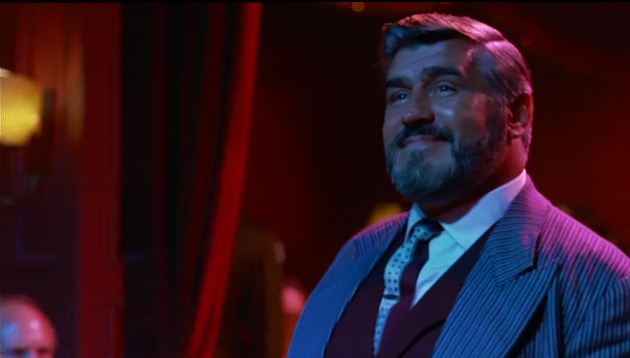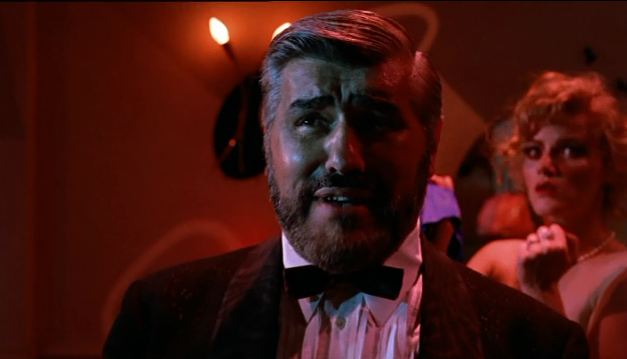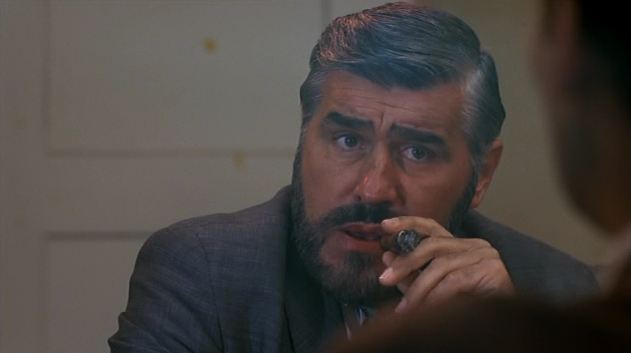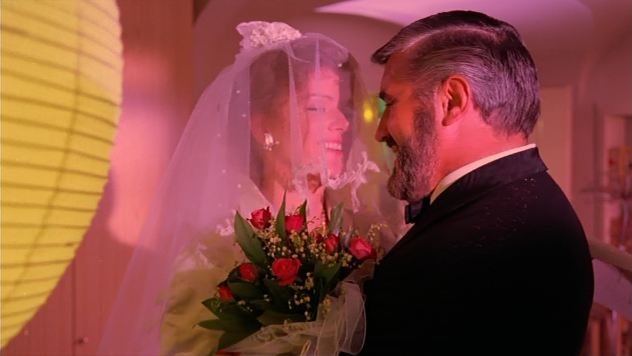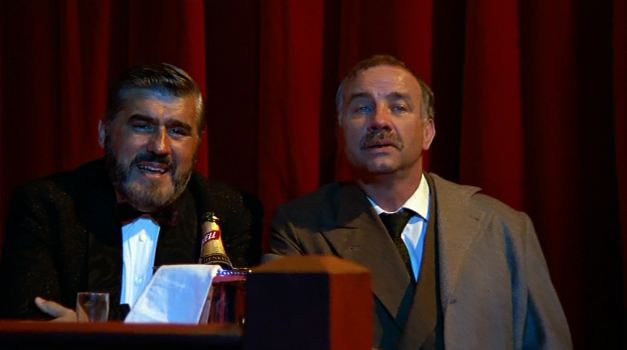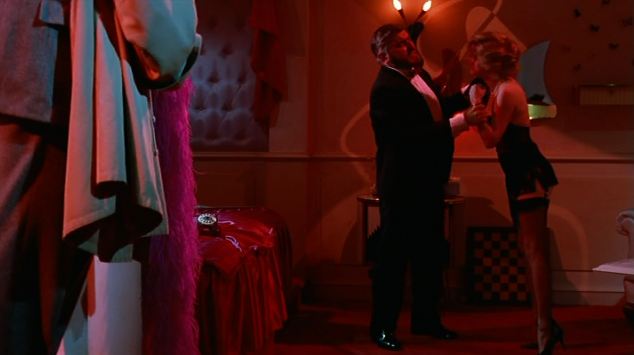Mario Adorf as Herr Schuckert is just the sort of guy who is always going to be thriving, whether it be war or peace. In wartime, one imagines, Schuckert was doubtless a hustler making good money on people’s misery – and now, in the post-war era he is a larger than life developer who has many shady local business interests, including a sizeable stable of prostitutes. When we first meet Schuckert , we can instantly see the extent of his success as he pisses next to the town’s mayor, one of his best clients.
Schuckert is as he says himself, an exponent of the free economy, but he is really a show off, and a brash manipulator of people and his environment, the exact kind of person to thrive during an economic miracle. He gives to the church and he gives to the local leftist protestors, not because he cares about either, or because as he says ‘a good businessman never burns his bridges’ – but because he likes to be seen to be giving. It’s worth pointing out that Anton Saitz, Gottfried John in IN A YEAR OF THIRTEEN MOONS, another great Fassbinder baddie, is in the exact same business as Schuckert – property development plus brothels.
Mario Adorf as Schuckert is also a very beautiful man; he swans happily through the film and swans happily out of it, unlike most of the other characters, which tells us something about the economic state we are now within; money can make you happy here, as can its powerful trappings. The top of the heap is the place to be, and if you are immoral, then you are no different from just about anyone else. The lefties who lie to themselves are unhappy, and they fight a system they will never beat. The prostitutes and other workers who will do anything for money are obviously never happy; and the authorities, who are if not incompetent, are corrupt after their own fashion. Smoking, bathed in red light, Schuckert and Lola are small town dreamers, individualists with big plans, a fairly selfish couple, and they really make each other laugh – suggestive of the fact that despite everything, they really are good friends.
Both Lola and Schuckert think hard in one late night scene about how best to corrupt the new building inspector, Von Bohm, and funnily enough they both have the same plan. It’s a small point but worth making, that there is a constant theme throughout the film, not just concerning who controls Lola’s body, but who is going to profit from it too.
Caption 43:09 (lola) if he really knew what you are, he wouldn’t have called you a scavenger, he would have called you a vulture.
The lilac in this film never ends and when Schuckert has his lunch meeting with Von Bohm, it’s funny to see the way their jackets in particular are lit up by this much used lamp. The kitchen into which they move after the meal are finished in green and lilac, enough to make a viewer queasy. Schuckert is violent too, of course, and he’s often seen in cold red light, but then what man would have come so far without being able to threaten; and Lola holds her own very well against him.
The scene where Esslin turns and in effect loses it, allowing his weaknesses to become passions, is when he tries to pay for Lola, goaded by Schuckert. Esslin doesn’t seem to take much goading but the thing is that Mario Adorf as Schuckert goads everybody for 2 hours here; it’s amazing. He is funny, furious and casual; then very,very bad. He has a good way of offering you a cigar; and he can threaten you for taking it. When the men are bidding for Lola it is slightly complex. Panicky viewers will now think that there is supposed to be a message here, perhaps a pretty large one about the German Economic Miracle, and economics in general. The music helps allay this, but although the scene starts with Schuckert wrestling Lola, there isn’t a particularly deep conclusion.
Having seen Mario Adorf in a few films, you wouldn’t think he was much to write home about, but in Fassbinder’s Lola, he shines almighty. The more that the character of Schuckert is on the ropes, the funnier he becomes, and the funnier he becomes, the more desperate, hotter and angry he becomes. Adorf’s prop throughout is the cigar, and it is the cigar (Arthur Daley style) that he offers continually as bribe. Indeed, as Esslin demonstrates near the end, when you take one of Schuckert’s cigars, that is you, effectively on the payroll.
At the end, we discover that Schuckert keeps a peacock, and how suitable. Garish, large and all for show, the perfect pet for the reconstruction. Right at the conclusion we can see even more; we see that Schuckert wins, and as sometimes happens in Fassbinder, the baddies are left smiling when the film stops turning.
Mario Adorf at Wikipedia.

